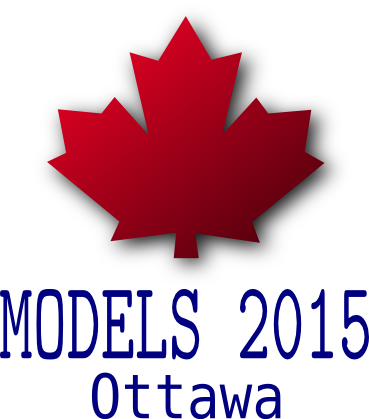Call for Papers: "10 years of Models@run.time"
Motivation
For the 10th edition of the workshop, we have taken a step back and revisited the original ideas of the workshop to evaluate its achievements and evolution during the 10 years. In consequence, we have strengthened the focus of the workshop and diversified the types of contributions. However, the main motivation remains the use of models at runtime. To keep the system’s goals fulfilled in a changing environment, software is required (i) to reflect on itself and its environment, and (ii) to adjust itself accordingly. The models@run.time paradigm proposes to use modeling techniques to capture and process the information to support this, using runtime models, i.e., models representing a view on the current state of the system. Thus, models@run.time is an enabler for many types of current and future software systems including self-adaptive and self-organizing systems as well as cyber-physical systems.
Goal
The objectives of this year's edition of the models@run.time workshop are:
- to foster work on novel topics covering fundamental as well as applied research on models@run.time or, in general, work that attempts to apply model-driven techniques at runtime,
- to bring together researchers from the model-driven software development community of different specialized areas including model evolution, model transformation, model validation and multi-paradigm modeling, and
- to discuss the applicability of research results on models@run.time to industrial or other real world case studies.
Workshop format
The workshop participants will be selected based on their experience and ideas related to this maturing field. You are invited to apply for attendance by sending
- a full paper (10 pages) on original research, lessons learned from realizing an approach or experiences on transferring a research prototype into practice,
- a position paper (6 pages) covering a well-argued vision or position,
- an artifact paper (6 pages) together with the artifact, which is of use to the community (e.g., a reusable case study or a challenging example) or
- a demo paper (4 pages) describing a demonstration to be shown at the workshop,
- a short motivation (max. 100 words) to give a 5-minute lightning talk, to introduce yourself to the community at the end of the first session of the workshop.
All papers must conform to the Springer LNCS formatting guidelines.
Artifacts will be published in ReMoDD, the repository for model-driven development. Motivations for lighting talks will not be published.
At least three PC members will review each submission. The authors will be notified about acceptance before the MODELS 2015 early registration deadline.
Topics of Interest
Papers on models@run.time can relate (but are not limited) to the following domains:
- The role of runtime models in different communities:
self-organizing systems, autonomic systems, organic computing and self-adaptive systems
- Big Data: e.g., application of models@runtime to reflect and adapt the composition and deployment of big data processing and storage components
- Cyber-physical Systems: hybrid runtime models
- Business Processes: runtime models of (business) workflows
- Cloud Computing: runtime models for, e.g., multi-tenant systems
We strongly encourage authors to address the following topics in their papers:
- The causal connection between the system and the runtime model, with particular focus on a transaction concept for this causal connection (timing, roll-back ability and data-consistency)
- Distributed models@run.time, i.e., having multiple, interacting systems, each having an own runtime model
- Modular models@run.time, i.e., approaches to improve the modularity of models@run.time systems
- Co-evolving models@run.time, i.e., systematic approaches to synchronize multiple, interacting models@run.time systems
- For those papers focusing on executable models at runtime, we encourage the investigation of how the feedback from the systems are reflected in the executable models (so that they have causal (bi-)connections with the systems).
|
